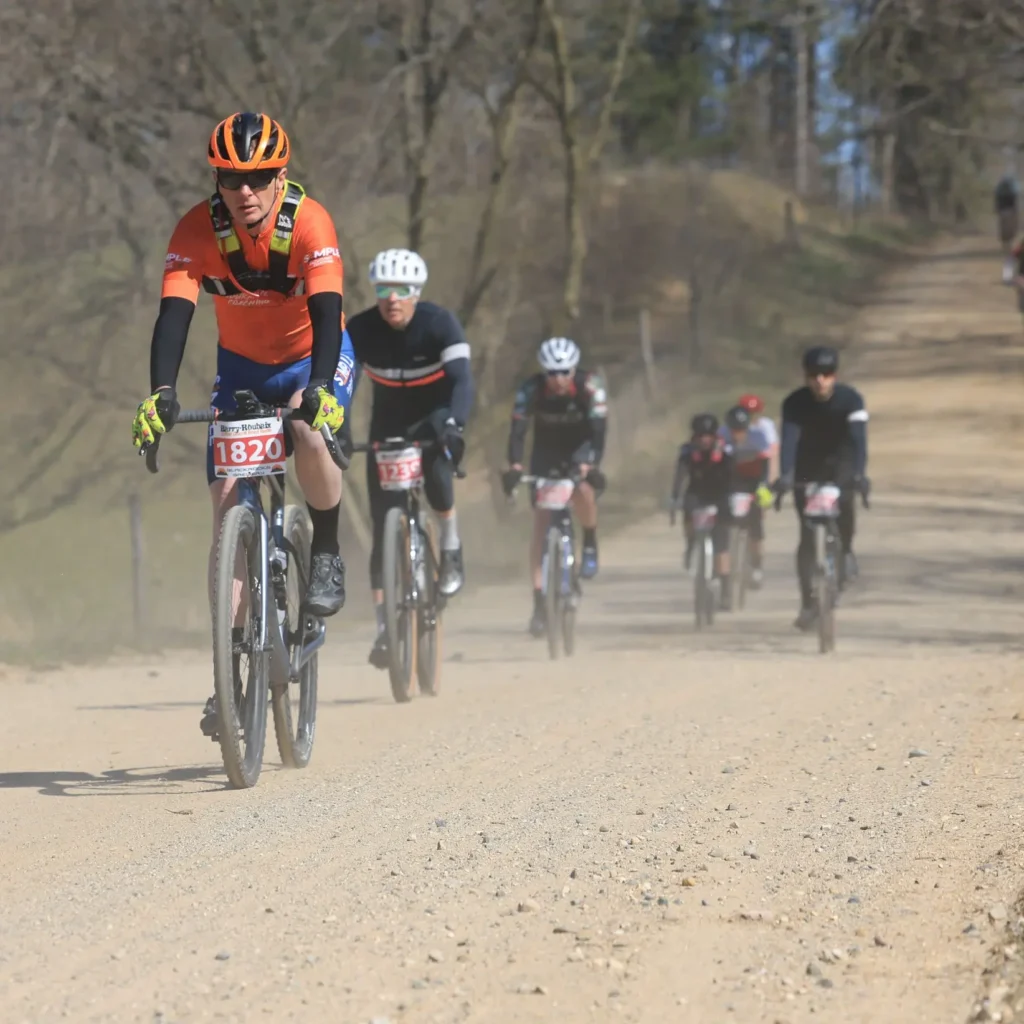
One of my endurance athletes, a woman in her 50s, recently asked me about Time-Restricted Eating (TRE)—also known as intermittent fasting—and whether it’s a good idea for menopausal women.
Many people try TRE to lose weight, but emerging studies suggest that fasting may also positively affect metabolic health, hormonal function, and fat oxidation.
However, for endurance athletes, the challenge often lies in logistics—how to fit training and fueling into a limited eating window.
For example, if you’re eating within only an eight-hour window, when do you do your long rides or high-intensity intervals?
And how do you fuel them without compromising recovery?
Potential Benefits for Menopausal Women
A 12-week clinical trial of about 62 menopausal women (average age 51) found that combining 16:8 TRE with regular resistance and endurance training led to greater improvements in BMI, fat mass, waist circumference, insulin, and glucose than training alone. This suggests TRE can work for body composition and metabolic health—although the study didn’t clarify whether exercise sessions were done in a fasted state or during the feeding window.
A 2025 pilot study reported additional benefits when TRE was paired with high-intensity interval training in post-menopausal women, including:
- Improved aerobic capacity (VO₂max-related)
- Greater flexibility
- Increased fat oxidation
One interesting finding: TRE appeared to increase activity of orexin, a neuropeptide in the brain that boosts alertness, promotes spontaneous activity, and stimulates thermogenesis (calorie burning).
Orexin also plays a role in regulating glucose metabolism and encouraging the body to burn stored fat, both of which can improve body composition when paired with good nutrition and training.
Considerations for Endurance Athletes
Research on TRE in female endurance athletes, especially those in midlife, is still limited.
In a study of elite male cyclists, TRE with an eight-hour feeding window improved power-to-weight ratio, reduced inflammation, and improved immune markers.
However, these athletes trained during their feeding window, ensuring they were fueled for their sessions.
For menopausal women, this highlights a key consideration: if you try TRE, plan your most demanding workouts during the hours you’re eating.
Risks and Important Caveats
Women, particularly active women, may be more vulnerable to the negative metabolic effects of fasting.
One study showed increased insulin resistance in healthy, non-obese pre-/perimenopausal women after short-term fasting.
Additionally, endurance athletes face the risk of Relative Energy Deficiency in Sport (RED-S), a state of insufficient energy availability that can impair performance, bone density, and hormone function.
TRE can make this worse if not planned carefully.
A Smarter Approach to Calorie Deficit
If the primary goal is healthy, sustainable fat loss, most sports nutrition experts recommend a modest calorie deficit of 300–500 calories per day rather than aggressive fasting.
This approach generally results in:
- 0.25–0.5 kg (0.5–1 lb) fat loss per week
- Preservation of lean muscle mass
- Lower risk of training quality loss and RED-S
Larger deficits (750–1,000+ calories/day) can lead to:
- Muscle loss
- Hormonal disruption
- Decreased recovery capacity
- Higher injury risk
Athlete-Specific Nutrition Considerations
If you’re pursuing fat loss while training:
- Fuel around training: Especially for high-intensity and long sessions.
- Prioritize protein: Aim for ~1 g per pound of body weight daily.
- Choose nutrient-dense foods: Vegetables, fruits, lean proteins, whole grains.
- Monitor performance: If pace, power, or recovery drop, the deficit may be too aggressive.
Recommendations for Trying TRE
If considering TRE:
- Plan long or intense workouts during your feeding window.
- Ensure you’re getting enough total calories.
- Keep protein intake high (~1 g/lb body weight).
- Focus on a moderate calorie deficit for sustainable fat loss.
When TRE may be inadvisable:
- Signs of RED-S (low energy, bone stress injuries, hormonal issues).
- Declining performance or recovery.
- A daily schedule that makes fueling around workouts impractical.
Final Thoughts
I suggested to my athlete that she could try TRE, but the main challenge would be fitting her workouts and fueling into the eating window.
If her primary concern was improving body composition, she might find it easier to slightly reduce overall calories, increase protein, and reduce some carbohydrate intake while still fueling well for high-intensity training.
In short, TRE can be a useful tool for some menopausal endurance athletes, but it’s not a magic bullet.
The key is balancing energy intake with training demands and making sure performance, health, and recovery stay on track.
Three Things To Know About Time-Restricted Eating For Menopausal Women
1. Time-Restricted Eating can benefit menopausal women, potentially improving body composition, metabolic health, and fat oxidation, especially when combined with regular resistance and endurance training. But research in midlife endurance athletes is still limited.
2. Logistics matter for athletes: To maintain training quality and recovery, long or intense workouts should ideally be scheduled during the eating window, and total calorie and protein needs must still be met.
3. A modest calorie deficit may be easier and safer than strict fasting for body composition goals, helping to preserve performance, recovery, and muscle mass while reducing the risk of RED-S.
Need more?
Unlock the secrets to mastering gravel racing with our FREE Guide to Gravel Racing! Get yours here.
BOOK A CALL so we can discuss your goals, answer questions, and talk about making your endurance training more effective, fun, and Simple.
Paul Warloski is a:
- USA Cycling Level 1 Advanced Certified Coach
- RRCA Running Coach
- Training Peaks Level 2 Coach
- RYT-200 Yoga Instructor
- Certified Personal Trainer
- Certified Nutrition Advisor




